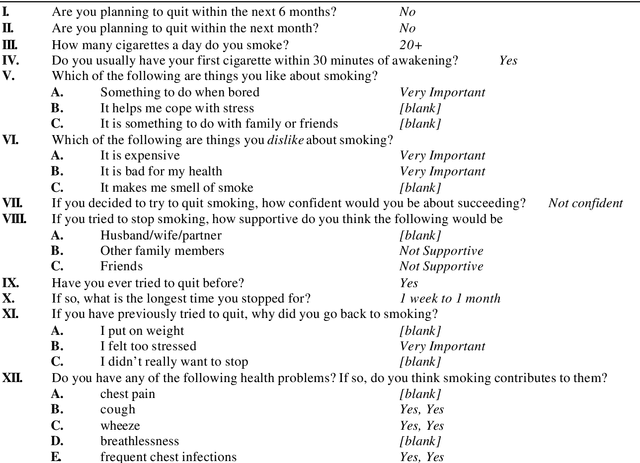Liesl Osman
Univ of Aberdeen, Medicine
Tailored Patient Information: Some Issues and Questions
Jul 18, 1997Abstract:Tailored patient information (TPI) systems are computer programs which produce personalised heath-information material for patients. TPI systems are of growing interest to the natural-language generation (NLG) community; many TPI systems have also been developed in the medical community, usually with mail-merge technology. No matter what technology is used, experience shows that it is not easy to field a TPI system, even if it is shown to be effective in clinical trials. In this paper we discuss some of the difficulties in fielding TPI systems. This is based on our experiences with 2 TPI systems, one for generating asthma-information booklets and one for generating smoking-cessation letters.
* This is a paper about technology-transfer. It does not have much technical content
Knowledge Acquisition for Content Selection
Feb 24, 1997

Abstract:An important part of building a natural-language generation (NLG) system is knowledge acquisition, that is deciding on the specific schemas, plans, grammar rules, and so forth that should be used in the NLG system. We discuss some experiments we have performed with KA for content-selection rules, in the context of building an NLG system which generates health-related material. These experiments suggest that it is useful to supplement corpus analysis with KA techniques developed for building expert systems, such as structured group discussions and think-aloud protocols. They also raise the point that KA issues may influence architectural design issues, in particular the decision on whether a planning approach is used for content selection. We suspect that in some cases, KA may be easier if other constructive expert-system techniques (such as production rules, or case-based reasoning) are used to determine the content of a generated text.
 Add to Chrome
Add to Chrome Add to Firefox
Add to Firefox Add to Edge
Add to Edge